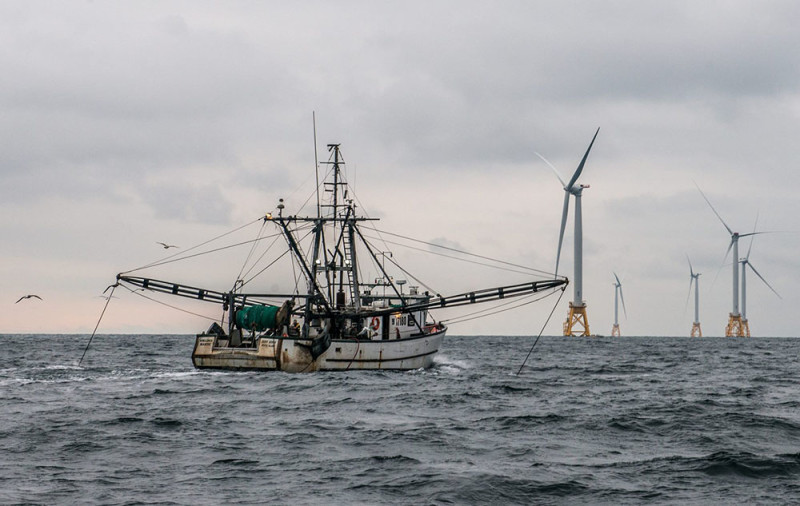All nine members of the Rhode Island Fishermen’s Advisory Board resigned Sept. 1, saying the state Coastal Resource Management Council is so committed to developing offshore wind power that it has rejected the board’s concerns about fishery and environmental impacts.
“It has become abundantly clear that the Rhode Island CRMC has made deference to offshore wind developers its top priority regardless of the requirements of the Ocean SAMP, the cost to the environment, or the impacts to Rhode Island’s fishing industry,” board members said in a letter to Jeff Willis, the executive director of the Coastal Resources Management Council.
The state’s Special Area Management Plan is a regulatory tool enabled by the Coastal Zone Management Act, a 1970s federal law that gives states a say in development in federal waters. Rhode Island fishermen say the state should be more aggressive in using that power to control how the federal Bureau of Offshore Energy Management and wind companies plan offshore wind projects.
“We as members of the FAB thought that the purpose of FAB/CRMC review was to ensure that offshore wind projects conformed to the requirements and restrictions of the Ocean SAMP. We were wrong,” the advisory board wrote. “The Ocean SAMP process has been reduced to mere political theater, to which we refuse to lend any further credence by our presence.”
The letter was signed by advisory board chairman Lanny Dellinger, along with members Christopher Brown, Michael Marchetti, Greg Mataronas, Chris Lee, Brian Thibeault, Meghan Lapp, Rich Hittinger, and Rick Bellavance.
The advisors said the council’s decisions have condoned “industrial construction and literal plowing of glacial moraine in violation of the Ocean SAMP’s environmental protection requirements, the decimation of cod spawning grounds and adverse ‘population level impacts on Atlantic cod’ per NOAA, significant long-term impacts on Rhode Island’s fishing industry in violation of the Ocean SAMP’s enforceable policy, and open water cooling systems not even allowed in the state, receiving power from the project to be constructed on top of spawning grounds, to name a few.”
In a statement to news media after the resignations, Coastal Resource Management Commission officials said they were “disappointed to learn of the resignation of the FAB members.
“The FAB has provided valuable information and insight to the CRMC for its federal consistency reviews of offshore wind energy projects. While unfortunate, these resignations do not affect the CRMC’s review scope, obligations and timelines as contained in the federal CZMA.
"The CRMC remains hopeful that the Rhode Island fishing community will continue to participate in the public process for reviewing offshore wind energy projects, as well as any other projects affecting the fishery resources of the State.”







